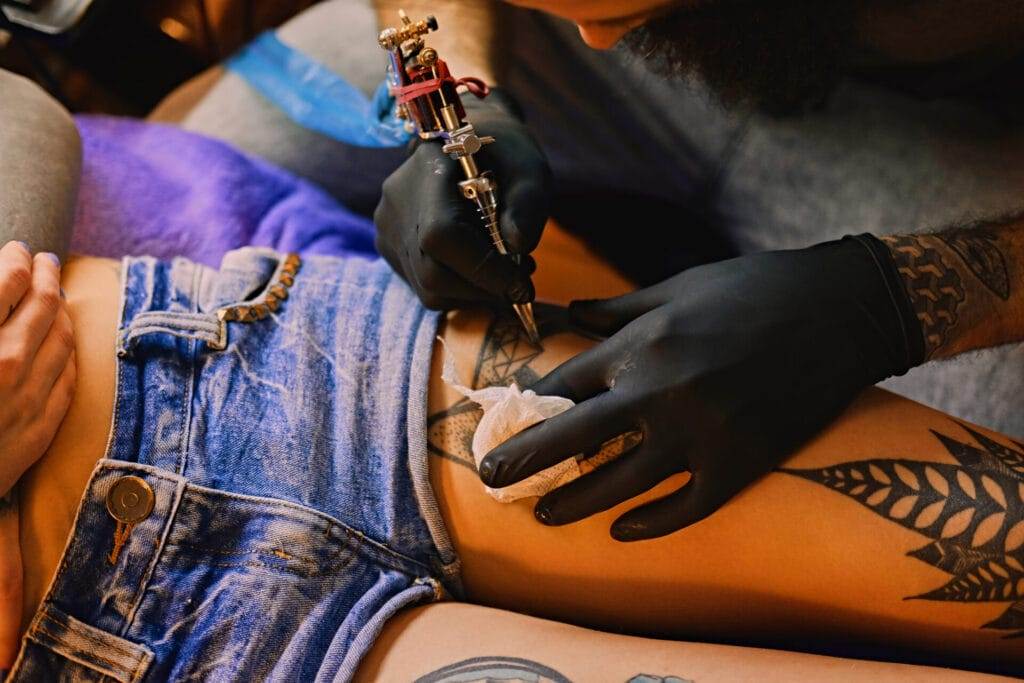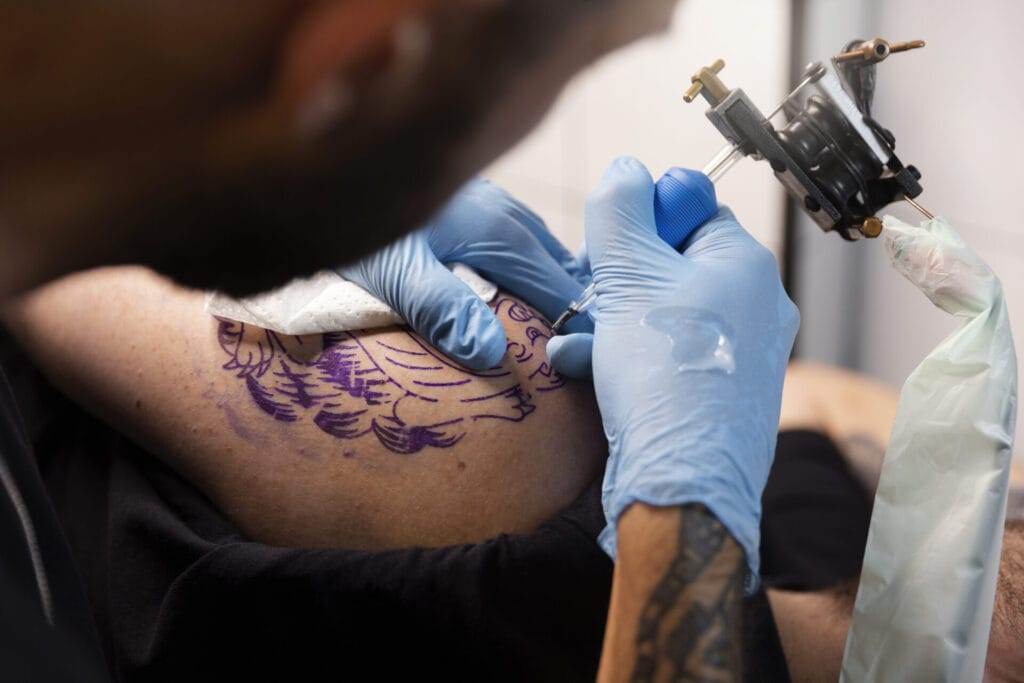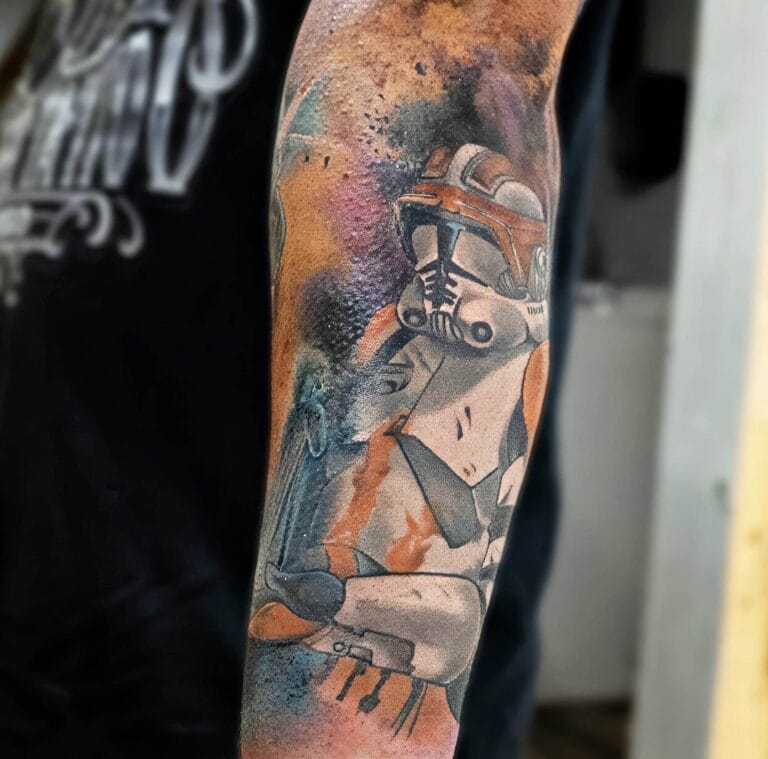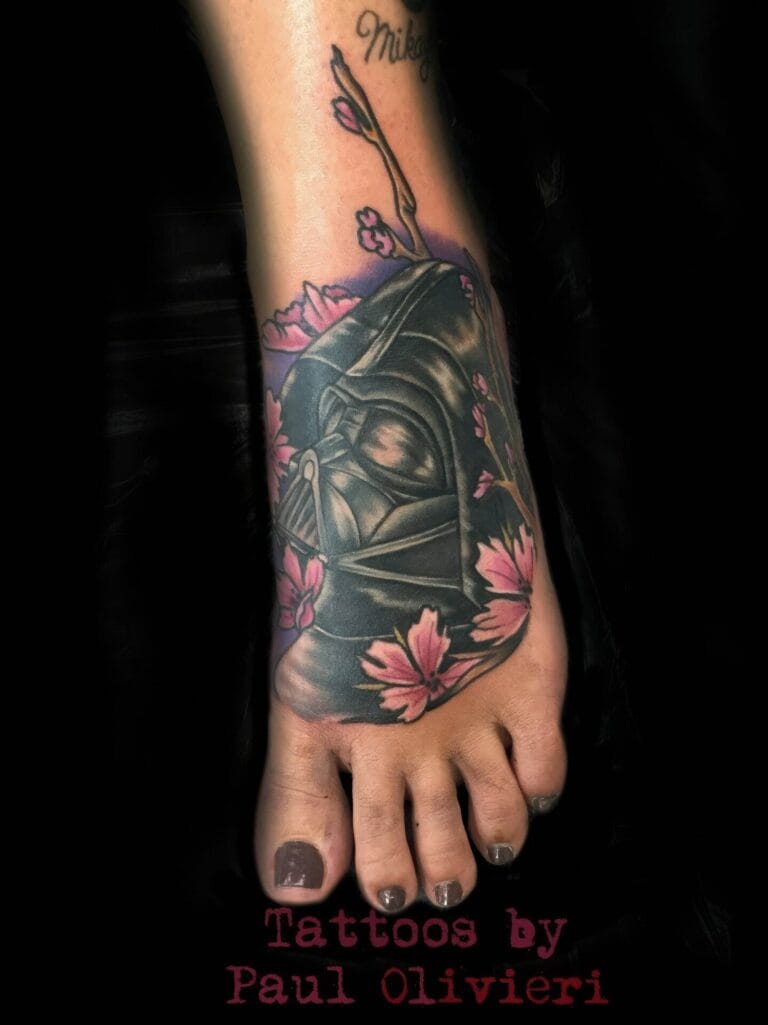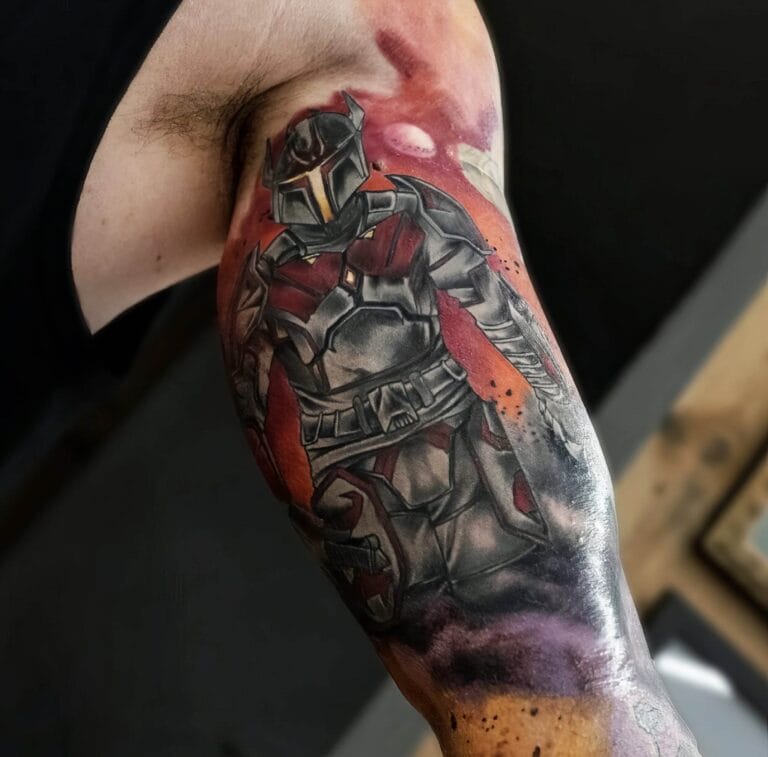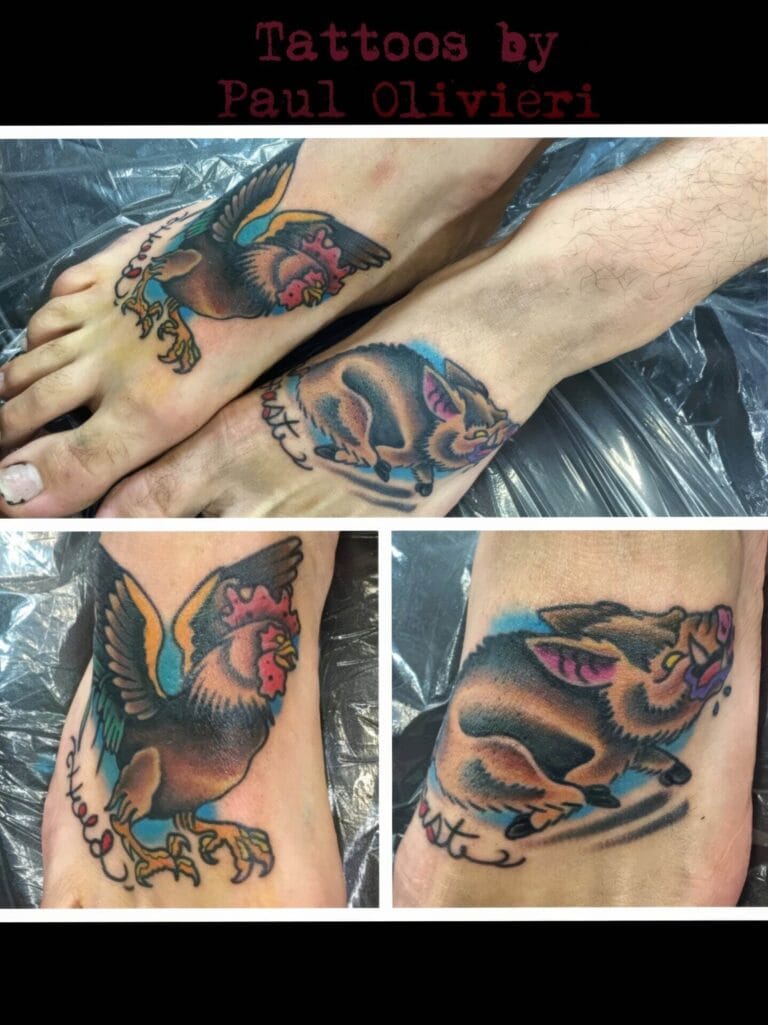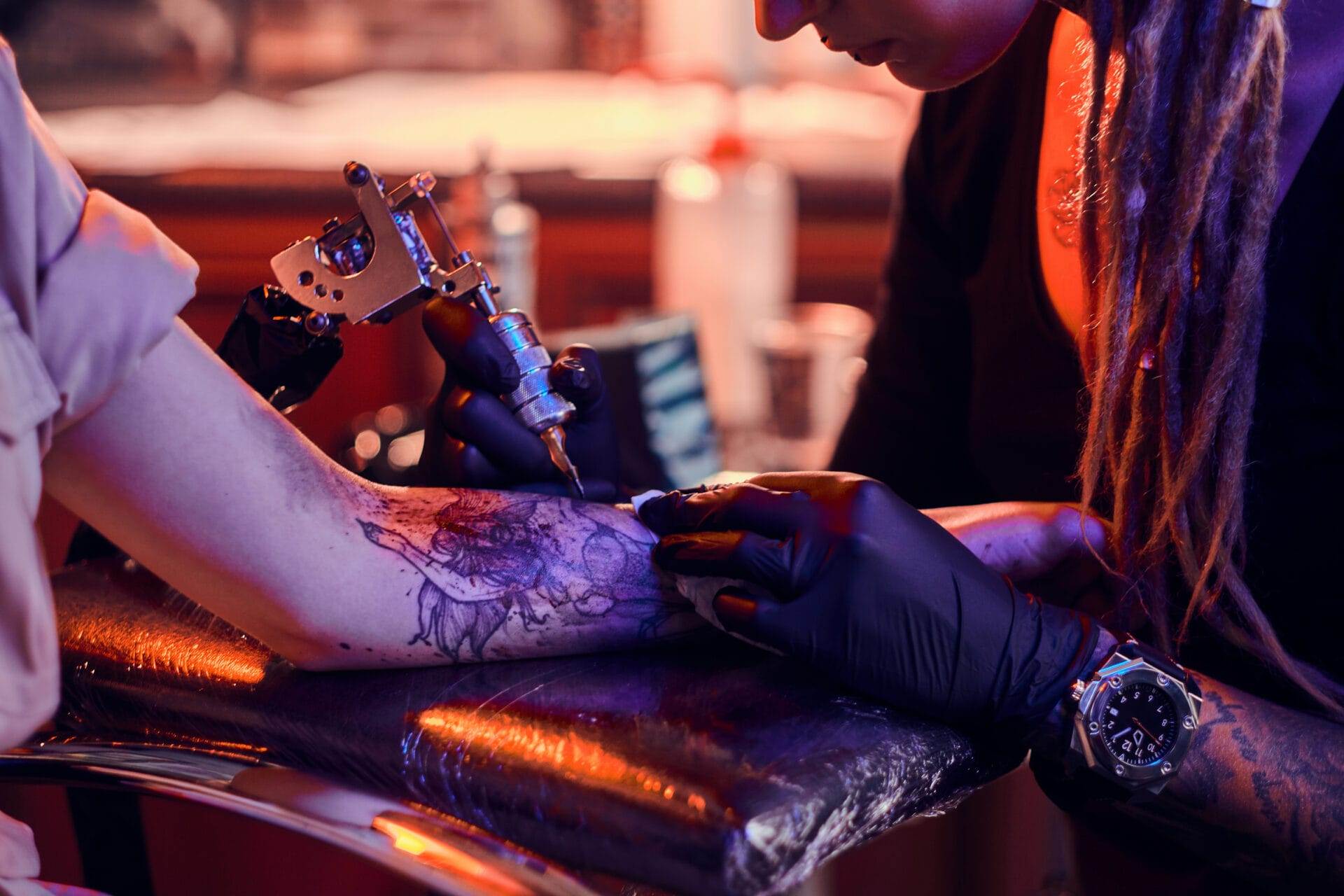
Tattoos have become increasingly popular in recent years, with more and more people choosing to adorn their bodies with meaningful and artistic designs. However, getting a tattoo is not just a one-time commitment. In order to maintain the beauty and vibrancy of your tattoo, proper care and maintenance are essential. That’s where Ink for Life comes in. This guide will provide you with all the information you need to keep your tattoo looking fresh and vibrant for years to come.
Understanding the Science Behind Tattoo Fading
Tattoo fading is a natural process that occurs over time. There are several factors that contribute to this fading, including sun exposure, aging, and the body’s immune system. Sun exposure is one of the main culprits when it comes to tattoo fading. The ultraviolet (UV) rays from the sun can break down the ink particles in your tattoo, causing them to fade and lose their vibrancy.
Another factor that contributes to tattoo fading is the aging process. As we age, our skin becomes thinner and less elastic, which can cause tattoos to lose their sharpness and clarity. Additionally, the body’s immune system plays a role in breaking down tattoo ink. When you get a tattoo, your immune system recognizes the ink as a foreign substance and tries to eliminate it. Over time, this can lead to some fading of the tattoo.
Choosing the Right Ink: Factors to Consider
When it comes to choosing the right ink for your tattoo, there are several factors to consider. The type of ink you choose can have a significant impact on how long your tattoo lasts and how well it holds its color. There are different types of tattoo ink available, including traditional ink, organic ink, and vegan ink.
Traditional ink is made from a combination of pigments and carrier fluids. It is known for its vibrant colors and long-lasting results. However, traditional ink may contain ingredients that can cause allergic reactions in some individuals. Organic ink, on the other hand, is made from natural ingredients and is less likely to cause allergic reactions. However, organic ink may not be as vibrant or long-lasting as traditional ink.
Vegan ink is another option to consider. This type of ink is made without the use of any animal products and is suitable for individuals who follow a vegan lifestyle. Vegan ink is known for its vibrant colors and long-lasting results. However, it may be more expensive than traditional or organic ink.
When choosing ink for your tattoo, it’s important to consider your personal preferences and any potential allergies or sensitivities you may have. It’s also a good idea to consult with your tattoo artist, as they will have experience working with different types of ink and can provide guidance based on your specific needs.
Aftercare Tips for a Vibrant Tattoo
Proper aftercare is essential for maintaining the vibrancy and longevity of your tattoo. Immediately after getting your tattoo, your artist will provide you with specific instructions on how to care for it. It’s important to follow these instructions carefully to ensure that your tattoo heals properly and retains its color.
One of the most important aspects of aftercare is keeping your tattoo clean. Gently wash the tattooed area with mild soap and warm water, being careful not to scrub or rub the tattoo. Pat the area dry with a clean towel and apply a thin layer of fragrance-free moisturizer to keep the skin hydrated.
It’s also important to avoid exposing your tattoo to excessive moisture, such as swimming or soaking in hot tubs, during the healing process. This can cause the ink to fade or become distorted. Additionally, avoid picking or scratching at your tattoo, as this can lead to infection and damage the design.
The Role of Sun Exposure in Tattoo Fading
Sun exposure is one of the biggest culprits when it comes to tattoo fading. The UV rays from the sun can break down the ink particles in your tattoo, causing them to fade and lose their vibrancy. This is why it’s important to protect your tattoo from the sun’s harmful rays.
One of the best ways to protect your tattoo from sun damage is by applying sunscreen. Choose a broad-spectrum sunscreen with a high SPF and apply it generously to your tattoo before going outside. Reapply every two hours or after swimming or sweating.
In addition to sunscreen, you can also protect your tattoo by covering it up with clothing or accessories. Wearing long sleeves, hats, or using a bandage can help shield your tattoo from direct sunlight. This is especially important during peak sun hours, typically between 10 am and 4 pm.
How to Protect Your Tattoo During Water Activities
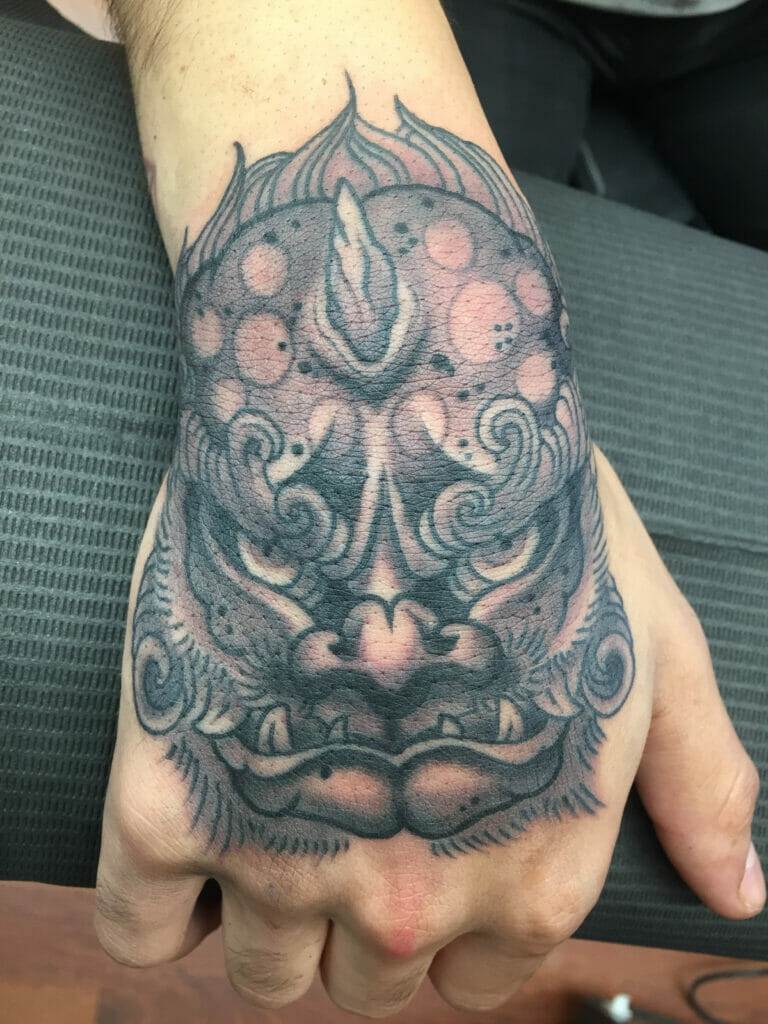
Exposing your tattoo to water can increase the risk of fading and infection, especially during the healing process. It’s important to take precautions to protect your tattoo during water activities such as swimming or showering.
When swimming, it’s best to avoid submerging your tattoo in water until it is fully healed. This can take anywhere from two to four weeks, depending on the size and location of your tattoo. If you must swim before your tattoo is fully healed, cover it with a waterproof bandage or use a barrier cream to protect the ink.
When showering, avoid using hot water directly on your tattoo. Hot water can open up the pores and cause the ink to bleed out. Instead, use lukewarm water and gently pat the tattoo dry with a clean towel. Avoid rubbing or scrubbing the tattoo, as this can cause irritation and damage the design.
Avoiding Harsh Chemicals and Scrubbing on Your Tattoo
Harsh chemicals and scrubbing can be detrimental to your tattoo’s longevity and vibrancy. When cleaning your tattoo, it’s important to avoid products that contain alcohol, fragrances, or dyes. These ingredients can irritate the skin and cause the ink to fade.
Instead, opt for gentle, fragrance-free soaps or cleansers specifically designed for tattoos. These products are formulated to cleanse the skin without stripping away the ink or causing irritation. Gently wash your tattoo with your fingertips or a soft cloth, being careful not to scrub or rub the area.
After cleaning, pat your tattoo dry with a clean towel and apply a thin layer of fragrance-free moisturizer. This will help keep the skin hydrated and prevent it from drying out, which can lead to fading and cracking of the ink.
Touch-ups and Maintenance: When to Consider Them
While tattoos are designed to be permanent, they may require touch-ups or other maintenance over time. Factors such as sun exposure, aging, and changes in weight can cause tattoos to fade or become distorted. If you notice significant fading or changes in your tattoo, it may be time to consider getting a touch-up.
When considering touch-ups or other maintenance, it’s important to find a reputable artist who specializes in tattoo restoration. Look for artists who have experience working with faded or damaged tattoos and ask to see before and after photos of their work. This will give you an idea of their skill level and the results you can expect.
It’s also important to have realistic expectations when it comes to touch-ups. While a skilled artist can improve the appearance of a faded tattoo, they may not be able to completely restore it to its original vibrancy. It’s important to communicate your expectations with your artist and discuss what is possible given the condition of your tattoo.
Common Mistakes to Avoid When Caring for Your Tattoo
Caring for your tattoo properly is essential for maintaining its vibrancy and longevity. However, there are several common mistakes that people make when caring for their tattoos. By avoiding these mistakes, you can keep your tattoo looking vibrant and beautiful for years to come.
One common mistake is using the wrong products on your tattoo. Harsh soaps, lotions, or ointments can irritate the skin and cause the ink to fade. It’s important to use gentle, fragrance-free products specifically designed for tattoos.
Another mistake is not following aftercare instructions. Your tattoo artist will provide you with specific instructions on how to care for your tattoo during the healing process. It’s important to follow these instructions carefully to ensure that your tattoo heals properly and retains its color.
Finally, another common mistake is exposing your tattoo to excessive moisture or sunlight during the healing process. This can cause the ink to fade or become distorted. It’s important to avoid swimming, soaking in hot tubs, or spending long periods of time in direct sunlight until your tattoo is fully healed.
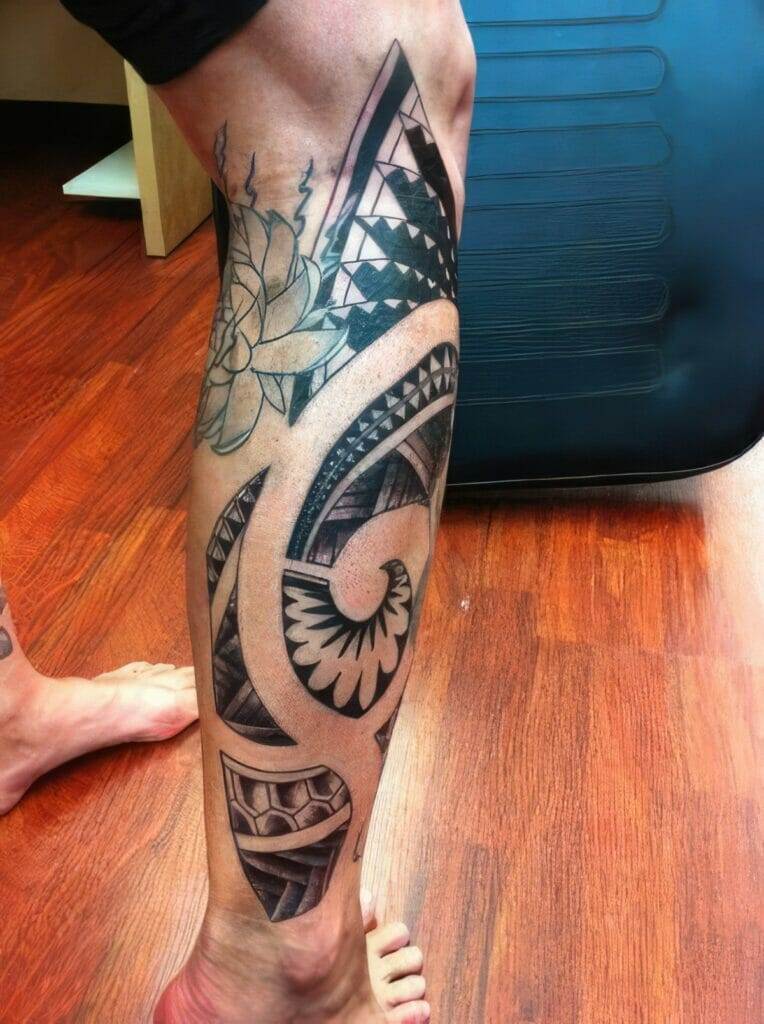
Embracing the Lifelong Beauty of Your Tattoo
In conclusion, maintaining the beauty and vibrancy of your tattoo requires proper care and maintenance. By understanding the science behind tattoo fading, choosing the right ink, finding a skilled tattoo artist, and following proper aftercare, you can ensure that your tattoo lasts for years to come.
While tattoos may fade over time, with proper care and maintenance, you can keep them looking vibrant and beautiful. Embrace the lifelong beauty of your tattoo and take pride in your ink. Remember, a tattoo is not just a piece of art on your skin; it’s a reflection of who you are and the stories you carry with you.

